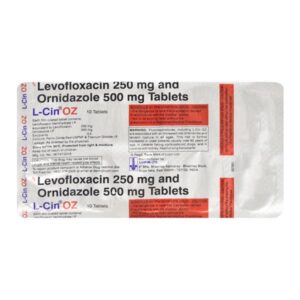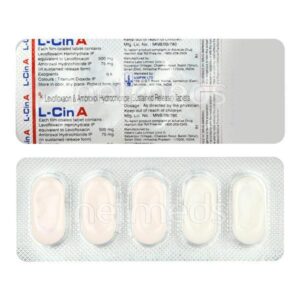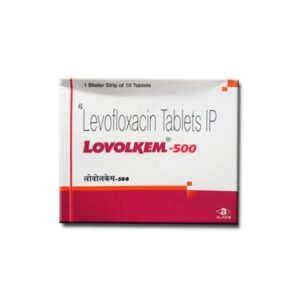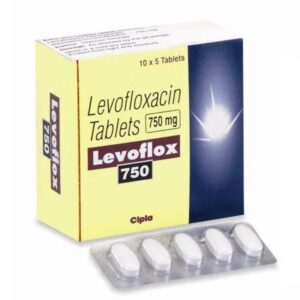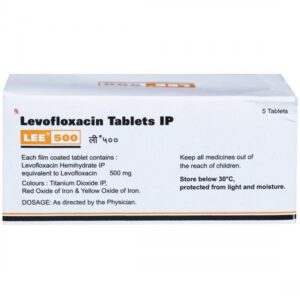LEVOFLOXACIN
LEVOFLOXACIN: Levofloxacin is a commonly prescribed antibiotic medication that belongs to the fluoroquinolone class of drugs. It is used to treat a wide range of bacterial infections including respiratory tract infections, urinary tract infections, skin and soft tissue infections, and certain types of sexually transmitted infections.
The mechanism of action of levofloxacin involves inhibiting the bacterial enzyme DNA gyrase, which is essential for the replication, transcription, and repair of bacterial DNA. This inhibition leads to the disruption of the bacterial DNA synthesis, ultimately killing the bacteria and resolving the infection.
Levofloxacin is typically taken orally once daily, although there are also intravenous formulations available for severe infections. The dosage and duration of treatment are determined by the specific infection being treated and the healthcare provider’s instructions.
Common side effects of levofloxacin include nausea, vomiting, diarrhea, dizziness, headache, and abdominal pain. Some people may also experience photosensitivity, which increases the risk of sunburns, so it is important to use sunscreen or protective clothing when exposed to sunlight. In rare cases, levofloxacin can cause more severe side effects such as tendonitis or tendon rupture, central nervous system effects (such as seizures or hallucinations), and allergic reactions.
It is important to note that levofloxacin should only be used to treat bacterial infections and is not effective against viral infections like the common cold or flu. Additionally, it is essential to complete the full course of treatment prescribed by the healthcare provider, even if symptoms improve before the medication is finished, to ensure the complete eradication of the infection and prevent potential antibiotic resistance.



